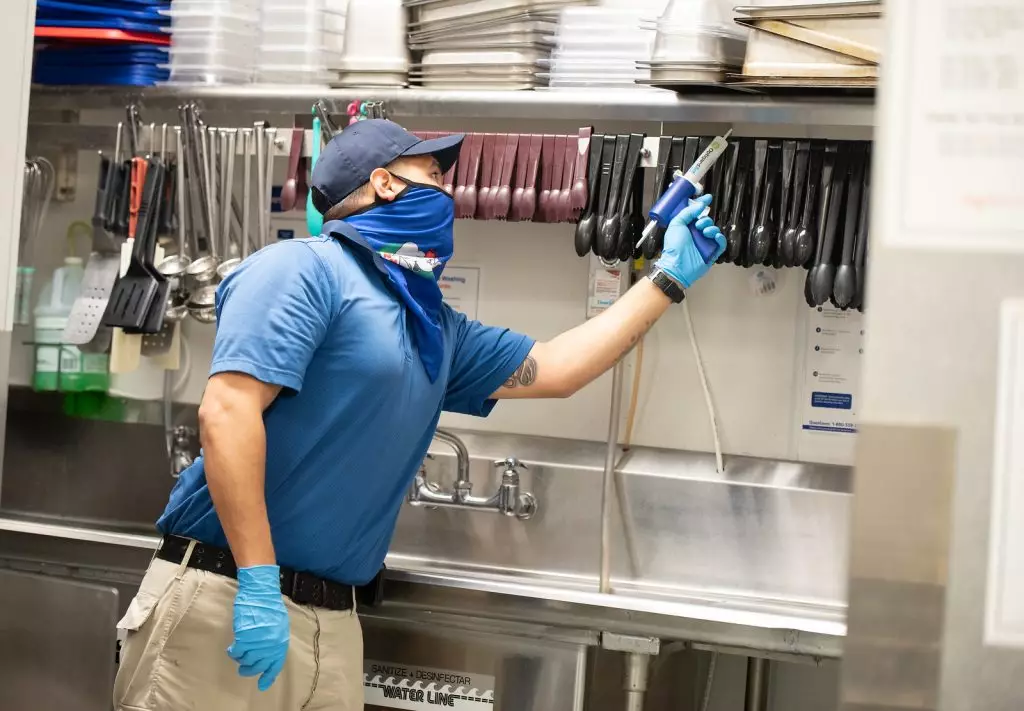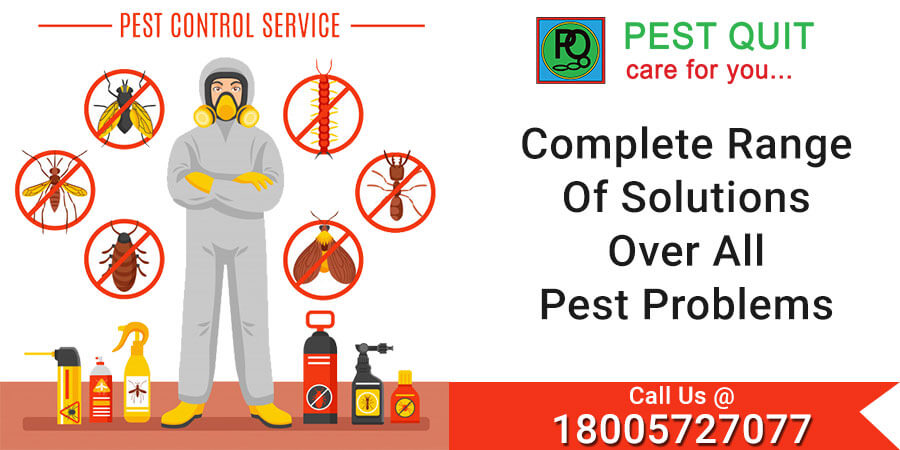Comprehensive Pest Control Auckland Solutions: Protect Your Space Today
Comprehensive Pest Control Auckland Solutions: Protect Your Space Today
Blog Article
Comprehending Different Kinds Of Parasite Control Techniques and Their Efficiency
The administration of pests is a critical aspect of keeping the health and wellness and integrity of numerous environments, from farming fields to residential homes. When taking into consideration pest control methods, it is vital to comprehend the varied approaches offered and their differing degrees of efficiency. From chemical interventions to biological remedies, each technique presents unique advantages and constraints. By checking out the subtleties of these insect control techniques, an extensive understanding of just how to deal with pest issues can be established.
Chemical Insect Control Approaches
Chemical bug control approaches play a crucial role in efficiently handling and getting rid of pest invasions in numerous settings. One of the vital benefits of chemical parasite control is its capacity to provide quick and targeted solutions to pest problems. Pest Control Auckland.
However, it is necessary to take into consideration the possible dangers and disadvantages associated with chemical bug control approaches. Overreliance on chemicals can cause the advancement of pesticide resistance in bugs, making them tougher to manage in the future. Furthermore, using specific chemicals can have damaging effects on non-target organisms, the setting, and human wellness otherwise applied correctly.

Biological Bug Control Methods
Making use of natural killers and virus to handle insect populations effectively, biological bug control techniques supply a green and sustainable strategy to pest management. By presenting or promoting the activity of organisms that normally prey on or contaminate pests, such as ladybugs for aphid control or specific bacteria for caterpillar invasions, organic control can help preserve parasite populations at convenient levels without the need for artificial chemicals. This approach is especially useful for natural farming methods, as it stays clear of using potentially damaging materials while keeping crop wellness.

Physical Pest Control Methods
While biological insect control techniques focus on utilizing natural killers and microorganisms, physical bug control techniques use mechanical and physical barriers to handle bug populations. These methods are often taken into consideration eco-friendly as they minimize the use of chemicals. Physical pest control includes strategies such as trapping, using obstacles like screens or internet, and literally eliminating parasites from the location.
Catches are typically made use of in physical insect control to capture and eliminate pests like rats and insects. These traps can be baited with food or scents to attract the parasites, leading them to a consisted of location where they can be quickly dealt with. An additional physical method is making use of barriers such as webs, fences, or screens to protect against bugs from getting in or infesting certain areas. For instance, installing great mesh screens on windows can assist shut out insects and flies.
Natural Pest Control Techniques
Incorporating plant-based repellents and natural predators is a crucial strategy in applying effective natural bug control techniques. By motivating the existence of helpful insects like ladybugs, lacewings, or predatory mites, gardeners can normally regulate pest Homepage populations. These predators feed upon usual yard insects such as mites, caterpillars, and aphids, helping to maintain a well balanced ecological community without the need for chemical treatments.

In addition, click for more applying social practices such as plant turning, buddy growing, and keeping appropriate plant health can additionally improve the effectiveness of natural parasite control techniques. These techniques not only help in stopping pest invasions yet also promote biodiversity and total environment durability. By integrating these all-natural approaches, people can effectively take care of parasites while lessening environmental influence.
Integrated Insect Monitoring (IPM) Strategy
Carrying Out an Integrated Pest Administration (IPM) strategy is vital for effectively managing pest populations while decreasing reliance on chemical pesticides. IPM is a lasting and comprehensive strategy that integrates Learn More different insect control approaches to achieve long-term solutions. This technique concentrates on tracking, prevention, and control to resolve insect problems in an eco-friendly way.
IPM integrates biological, cultural, physical, and mechanical strategies with the minimal and tactical use pesticides when required. By emphasizing proactive measures such as habitat modification, organic control, and exemption, IPM intends to lower insect populaces and their effect on the environment. Routine tracking is crucial in IPM to examine insect levels accurately and determine one of the most suitable control approaches.
One of the key advantages of IPM is its capacity to lessen the threats connected with too much chemical use, such as environmental contamination and injury to non-target organisms. Furthermore, IPM promotes an extra all natural technique to pest administration by taking into consideration the general community dynamics. On the whole, the IPM technique uses a efficient and sustainable remedy for bug control while advertising ecological obligation.
Verdict
In verdict, understanding the different kinds of insect control methods and their performance is vital in efficiently handling pest problems. Chemical, biological, physical, and all-natural insect control approaches each have their own benefits and constraints. Integrated Insect Monitoring (IPM) technique, which combines numerous methods for lasting insect control, is increasingly being acknowledged as a ecologically pleasant and alternative option. By utilizing a combination of these people, techniques and organizations can properly control bugs while decreasing harm to the environment.
Chemical parasite control techniques play an essential role in successfully managing and getting rid of pest infestations in different atmospheres.Making use of all-natural predators and pathogens to handle pest populaces effectively, organic pest control techniques provide a sustainable and green strategy to pest administration. By introducing or advertising the task of organisms that naturally prey on or contaminate pests, such as ladybugs for aphid control or particular germs for caterpillar invasions, biological control can aid keep insect populaces at convenient degrees without the demand for artificial chemicals.While organic pest control techniques focus on harnessing natural predators and virus, physical bug control techniques make use of physical and mechanical barriers to take care of bug populations. Integrated Parasite Administration (IPM) technique, which integrates different methods for lasting insect control, is increasingly being recognized as a ecologically pleasant and alternative remedy.
Report this page